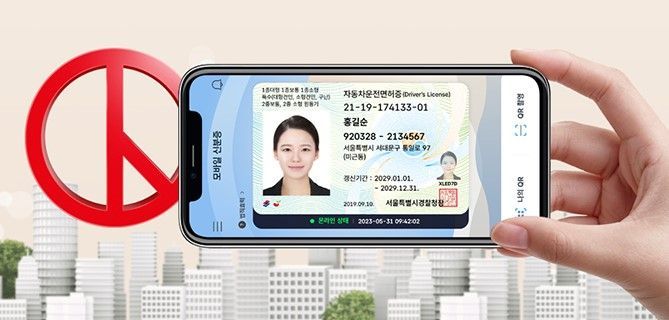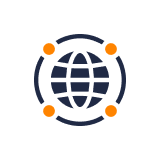Om
OmniOne Open DID Community
Oct24
Notice

At polling stations nationwide during the 22nd National Assembly election, people were seen using mobile IDs on their smartphones to verify their identity and receive their ballots. The ability to vote without a physical ID drew significant attention.
South Korea is considered a global leader and a model case in the adoption of mobile IDs. In fact, the Ministry of the Interior and Safety of South Korea has built the world’s first blockchain-based mobile ID issuance system, and citizens are using these mobile IDs in their daily lives.
Since early 2021, the Ministry of the Interior and Safety has been issuing blockchain-based mobile employee IDs for public servants. With just their smartphones, government employees in central offices and affiliated agencies can use various identity verification services, such as accessing government buildings and logging into systems. Following this, in early 2022, the ministry began issuing mobile driver’s licenses, allowing citizens to easily verify their identity when visiting banks or community centers, using their mobile driver’s licenses on their smartphones to conveniently handle financial transactions or public services. Moreover, since June of last year, the ministry has also started issuing mobile veterans' registration cards, integrating 15 different types of ID cards for veterans into a single mobile card. This enables recipients to receive the same benefits and recognition without needing physical ID cards.
The Ministry of the Interior and Safety plans to further expand blockchain-based digital IDs. Earlier this year, the ministry allocated a budget of 24 billion KRW for the introduction of mobile resident registration cards, announcing that starting in 2025, citizens aged 17 and above will be able to obtain mobile resident registration cards. Additionally, they aim to expand this to include various types of mobile IDs, such as foreigner registration cards and disability registration cards.
The mobile ID issuance system by the Ministry of the Interior and Safety was developed using the blockchain-based identity and credential authentication platform provided by IT security and authentication platform company RaonSecure. The issuance history of mobile ID applicants, as well as the verification history during financial transactions or the use of government services, is recorded on distributed blockchain nodes, making forgery or tampering nearly impossible. This also effectively prevents data loss or corruption due to system failures, ensuring excellent personal data protection and system stability.
South Korea's leadership in blockchain-based mobile IDs has garnered significant attention from the international community. The World Bank is actively promoting the spread of digital IDs for populations that are excluded from basic social infrastructure and welfare due to lack of verified identity, making them vulnerable to crime.
Representatives from the World Bank visited South Korea on the 3rd of last month, where they held discussions at RaonSecure's headquarters with related institutions and companies, including the Korea Minting and Security Printing Corporation. They convened a meeting to share the establishment case of the Korean mobile ID (K-DID) and discuss ways to strengthen partnerships. During this meeting, the Minting Corporation revealed that they have received considerable interest and requests for the adoption of the Korean mobile ID (K-DID) from Southeast Asian countries such as the Philippines and Indonesia, as well as from Latin American countries like Costa Rica and Paraguay. RaonSecure explained the technical differences between centralized identity verification (CID) systems and blockchain-based digital identity verification (DID) as applied to the Korean mobile ID, as well as the global trends.
Previously, in March, the World Bank also held discussions with the Korea Digital Authentication Association to analyze case studies on South Korea's digital ID and promote global dissemination.
An industry insider stated, "South Korea's mobile ID is a leading example of blockchain-based national digital IDs, which are increasingly seen as necessary and justified worldwide. Many countries are actively pursuing its adoption. With the South Korean government's commitment to implementing a digital government and the superior technical capabilities of domestic companies, South Korea's blockchain digital ID technology is set to establish itself as a global standard and contribute to humanity."
Thus, South Korea's blockchain-based mobile ID is recognized as a model case for national digital ID systems worldwide and is attracting great interest from many countries aiming to implement digital governments. In particular, developing countries in need of digital ID adoption are actively discussing and seeking cooperation with the South Korean government and businesses.
아시아경제 / 장효원 기자





